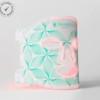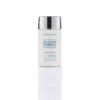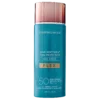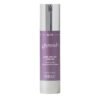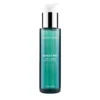Acne-prone skin can be a challenging condition to manage, and it’s essential to understand the causes and triggers to develop an effective skincare routine. Whether you’re a teenager going through typical hormonal changes or an adult dealing with persistent breakouts, this blog will help you grasp the fundamentals of what causes acne and what might be triggering those frustrating flare-ups. Additionally, we’ll explore various professional treatments that can help manage and improve acne-prone skin.
The Basics of Acne-Prone Skin:
Acne is a common skin condition characterized by the development of pimples, blackheads, whiteheads, and sometimes cysts. It primarily affects areas with a high concentration of oil glands, such as the face, neck, chest, and back. To effectively address acne-prone skin, it’s crucial to comprehend the factors that contribute to its occurrence.
- Excess Sebum Production:
One of the leading causes of acne is the overproduction of sebum, an oily substance that moisturizes the skin. When too much sebum is produced, it can clog hair follicles and lead to the formation of pimples. Hormones, particularly androgens, play a significant role in regulating sebum production. These hormones tend to fluctuate during puberty, menstruation, and pregnancy, which is why acne is often associated with these life stages.
- Clogged Pores:
Acne typically starts with clogged pores. Dead skin cells and excess sebum can combine to form a plug in the hair follicles, preventing the skin from shedding these impurities naturally. This creates a favorable environment for the growth of acne-causing bacteria, such as Propionibacterium acnes.
- Inflammation:
When bacteria multiply in the clogged follicles, the body’s immune system responds by sending white blood cells to fight the infection. This immune response leads to inflammation, which can cause redness, swelling, and pain associated with acne.
Triggers for Acne Breakouts:
Understanding what triggers acne breakouts is equally important. Some common triggers include:
Diet: Consuming a high-glycemic diet (rich in sugary and processed foods) can exacerbate acne for some individuals. Dairy products and certain food allergies may also be contributing factors.
Stress: Stress can lead to hormonal fluctuations that trigger or worsen acne. Finding effective stress management techniques is crucial for those with acne-prone skin.
Skincare Products: Using comedogenic (pore-clogging) skincare and makeup products can worsen acne. Opt for non-comedogenic options to avoid this trigger.
Medications: Some medications, such as corticosteroids and birth control pills, can impact hormone levels and, in turn, influence acne.
Treatments for Acne-Prone Skin:
In addition to maintaining a suitable daily skincare routine, professional treatments can significantly aid in managing and improving acne-prone skin. Here are some popular options:
- HydraFacial:
HydraFacial is a non-invasive and gentle treatment that cleanses, exfoliates, and hydrates the skin. It can be particularly effective for individuals with acne-prone skin as it clears away impurities and excess oil, reducing the risk of clogged pores.
- Facials:
Facials customized for acne-prone skin can include deep cleansing, extraction of blackheads and whiteheads, and the application of soothing and anti-acne masks. Regular facials can help maintain a clear complexion.
- Chemical Peels:
Chemical peels use exfoliating agents to remove the top layer of skin, promoting cell turnover and reducing acne scars and blemishes. They also help to unclog pores and prevent future breakouts.
- Microdermabrasion:
This non-invasive treatment uses a diamond-tipped device to gently exfoliate the skin, removing dead skin cells and unclogging pores. It can improve the texture and appearance of acne-prone skin.
Understanding the causes and triggers of acne-prone skin is the first step toward managing and effectively treating this common condition. While everyone’s skin is unique, a personalized skincare routine and professional guidance can help you address your specific concerns. Professional treatments like HydraFacial, facials, chemical peels, and microdermabrasion can significantly contribute to managing and improving acne-prone skin by reducing clogged pores, exfoliating, and promoting skin health. Clear, healthy skin is within reach with the right knowledge and treatment approach.
